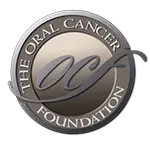We, humans, want answers! At the very least, give me a plausible explanation for why I was diagnosed with oral cancer. I never smoked, rarely drank alcohol, or used mouthwash with alcohol. I was young, only 31 years old when I developed a sore on the lateral border of my tongue that would not heal. And it was HPV negative.
Did I overeat mercury in fish? Perhaps, the BPA in water bottles or pesticides in fruit contributed to my diagnosis. Were my stress levels too high, or were my hormones out of balance? Perhaps, I just overate sugar. Although I want to assign blame, the only scientifically-proven culprit is my genetic makeup.
Our family history includes brain cancer, but it’s entirely unrelated to squamous cell carcinoma in the oral cavity. The definite answer is that I, and probably others in my family, have an unidentified genetic predisposition to cancer. This explains why cancer can develop in people who don’t have any risk factors.
The first questions we all ask after a diagnosis are ‘Why me?’ and ‘Why oral cancer?’ As time passes, new questions arise. I ask, ‘Why was I diagnosed at stage IV?’ Oooooh. This question makes the hairs on the back of my neck twitch. It seems to be a far more critical consideration. If this disease can be discovered in the early stages, it is easily survivable with a minimal loss of quality of life.
Again, I want answers to help pin down how we can prevent a late diagnosis from happening to those who will come after me. The answer is a combination of factors: quality of screenings, patient education, informed dental professionals who can recognize the early signs and symptoms of the disease, and a timely referral to specialists.
Over the years of asking questions, I’ve learned two crucial facts worth sharing:
- Biopsies (https://oralcancerfoundation.org/discovery-diagnosis/biopsy-report-patients-guide/) are not 100% definitive due to the possibility of inadequate tissue sampling, improper sample transfer, and inaccurate readings. If symptoms do not resolve, pursue another biopsy or at the very least, another review by an oral pathologist.
- A suspicious lesion in a never-smoker or non-drinker has a HIGHER index of suspicion compared to people who irritate the oral tissue with alcohol and tobacco products.
There is no other organization out there dedicated to changing the landscape from late diagnoses to early discovery, like OCF. OCF funds research on oral and oropharyngeal cancers and provides up-to-date information for the general public and dental professionals. But the heart and soul of the website is the patient forum (https://oralcancerfoundation.org/forum/) where experts in the field answer questions. We all have questions to which we need answers. If anyone can give you the answers to your questions about oral cancer, it’s OCF. (https://oralcancerfoundation.org/understanding/)
Eva Grayzel is an international speaker on the patient perspective of surviving stage IV oral cancer. She has published two children’s books to promote dialogue and minimize fear around a cancer diagnosis in the family. https://www.evagrayzel.com @evagrayzel




